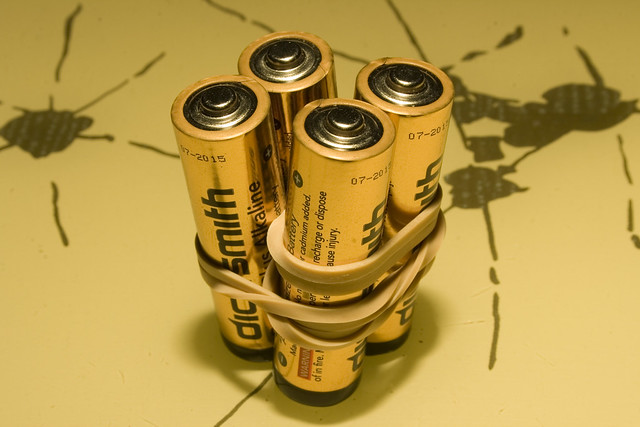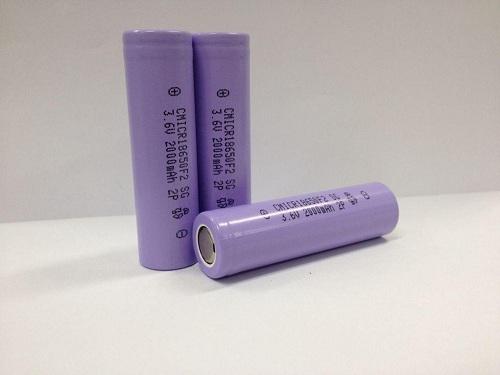18650 disposable battery
Jun 17, 2019 Pageview:1985
Batteries are one of the things that are used in quite a lot of things around you. Whether it be your mobile phones or your car, a lot of electronics rely on batteries for functioning. There are various types of cells available in the market. One such is the 18650 disposable battery.
Do you know 18650 disposable battery?
A 18650 battery is a disposable lithium-ion battery. Each number in the battery’s name signifies something about its physical dimension. For instance, this battery has a diameter of 18mm, a length of 65mm and a round cross-section. This is illustrated by the number 0.
It has a voltage of about 3.7 volts and a range between 1800 to 3500 mili-amp-hours. Overall, there are two types of 18650 batteries. This includes a protected 18560 battery and an unprotected 18650 battery. The average charge time of such a disposable battery is around four hours. However, it is essential to note that the voltage and amperage of the charger, as well as the battery type, plays a role in deciding the actual charge time.
When it comes to protected 18650 batteries, these cells have electronic circuits embedded in the casing. This external casing plays a pivotal role in preventing overcharge or over discharge of the cell. Hence, a short circuit is less likely to occur when you use a 18650 protected battery.
While unprotected 18650 cells are much more affordable than protected ones, they are not recommended for use by many. This is because there is nothing preventing over discharge and charge of these batteries, which can then cause harm to the appliance. One should only use 18650 batteries when the charge and discharge process is being monitored and controlled externally.
Compared to other batteries, the recharge cycle of a 18650 battery varies. However, it is quite limited. With every charge and eventual discharge, the batter undergoes oxidation as well as electrochemical degradation. This doesn’t just happen to 18650 disposable batteries but also other cells like 26650, AA, 14500 and AAA etc. This means that each of these batteries can only be recharged a limited number of times.
18650 disposable battery applications
Are you wondering how much power a standard 18650 battery has? Well, if you take a 3.7V, 3400 mAh battery, it stores around 2-3.5 aH. This boils down to 10-14 watt-hours of power. AC units need 1100 watts per hour to function. So, to put it in perspective, you will need 110 such batteries to power an AC for one hour. But, this isn’t the type of application the cells are used for anyway.
While rechargeable 18650 batteries are used to power vehicles, laptops and phones, the use of disposable 18650 batteries is somewhat limited.
Due to their one time use, 18650 disposable batteries are best used for flashlights, vaping tools, and other similar electronics. Because of their high discharge rates and superior capacity, these batteries are used for high-drain equipment and electronics.
Pros and cons of 18650 disposable battery
The advantages and disadvantages of using a 18650 disposable battery are the same as using any other lithium-ion battery.
The benefits include the following:
High energy density
The energy density of all Lithium-ion batteries, including 18650, is almost twice that of options like NiCd batteries. Currently, research is being conducted to make improvements in the electrode further. If better active materials are used in it, the energy density can further increase.
Only one cell required
Because of the high voltage that is delivered by such batteries, rather than requiring two cells, one cell of lithium-ion batteries gets the job done. This is the case in 18650 batteries as well. This has significantly simplified the battery design process for mobile phones and laptops.
A low maintenance solution
Whether it be 18650 battery or other types of lithium-ion batteries, each of them requires low maintenance. This is something no other battery can claim. This advantage is ensured by the lack of memory or scheduling cycle present in 18650 batteries. Compared to NiCd, the self-discharge of Li-ion batteries is less than half. This makes such cells ideal for modern equipment.
While such benefits allow lithium-ion batteries, including 18650 disposable battery, to be an excellent choice for modern day equipment, this doesn’t mean that the product is without any flaws.
Here are some of the drawbacks of using such cells.
It is very fragile
Compared to other types of batteries, lithium batteries are very delicate and hence require a protection circuit for smooth and safe operation. This protection circuit ends up restricting the peak voltage available in each cell during the charging process. The charge and discharge current is limited between 1 and 2C.
The problem of ageing
18650 batteries, just like other lithium-ion batteries, don’t age very well. It is easy to notice capacity deterioration after a year. In disposable batteries, this holds true regardless of whether you use the cell or not. One can attempt to slow down this process by storing the cell in a cool place since high temperature is linked to battery deterioration.
No recharge
When it comes to 18650 disposable batteries specifically, one fundamental problem is that they are disposable, to begin with. This means that they can’t be recharged. This can be a source of inconvenience for many. However, one can argue that the high energy density and discharge rate makes the hassle worth it since the batteries don’t run out of capacity quickly.
Conclusion
Choosing the right battery for the correct type of equipment can make or break the experience of using the said item. Even among the umbrella of lithium-ion batteries, there are a lot of the kinds of cells for you to choose between. Only opt for 18650 disposable batteries for your equipment when they are high-drain in nature.
Regardless of which type of Li-ion battery you select, one thing is for sure- these batteries are much better than those made of other chemicals.
- Prev Article: How to Charge a LiPo Battery for the First Time?
- Next Article: How Much Longer Do Lithium Batteries Last Compared To Alkaline?
Leave Message
Hottest Categories
-
Hottest Industry News
-
Latest Industry News











